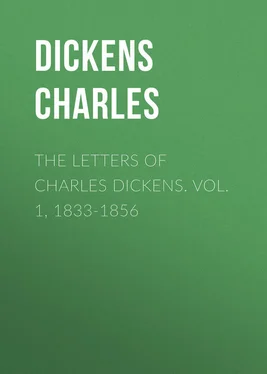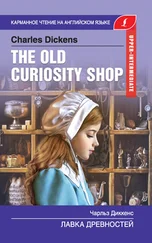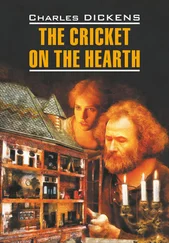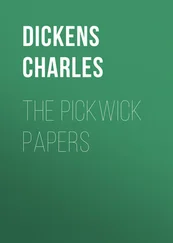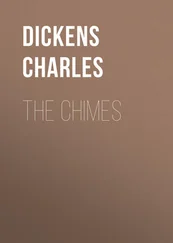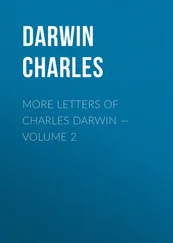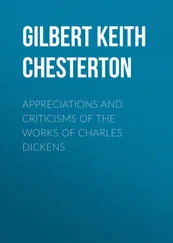Чарльз Диккенс - The Letters of Charles Dickens. Vol. 1, 1833-1856
Здесь есть возможность читать онлайн «Чарльз Диккенс - The Letters of Charles Dickens. Vol. 1, 1833-1856» — ознакомительный отрывок электронной книги совершенно бесплатно, а после прочтения отрывка купить полную версию. В некоторых случаях можно слушать аудио, скачать через торрент в формате fb2 и присутствует краткое содержание. Жанр: foreign_antique, foreign_prose, на английском языке. Описание произведения, (предисловие) а так же отзывы посетителей доступны на портале библиотеки ЛибКат.
- Название:The Letters of Charles Dickens. Vol. 1, 1833-1856
- Автор:
- Жанр:
- Год:неизвестен
- ISBN:нет данных
- Рейтинг книги:5 / 5. Голосов: 1
-
Избранное:Добавить в избранное
- Отзывы:
-
Ваша оценка:
- 100
- 1
- 2
- 3
- 4
- 5
The Letters of Charles Dickens. Vol. 1, 1833-1856: краткое содержание, описание и аннотация
Предлагаем к чтению аннотацию, описание, краткое содержание или предисловие (зависит от того, что написал сам автор книги «The Letters of Charles Dickens. Vol. 1, 1833-1856»). Если вы не нашли необходимую информацию о книге — напишите в комментариях, мы постараемся отыскать её.
The Letters of Charles Dickens. Vol. 1, 1833-1856 — читать онлайн ознакомительный отрывок
Ниже представлен текст книги, разбитый по страницам. Система сохранения места последней прочитанной страницы, позволяет с удобством читать онлайн бесплатно книгу «The Letters of Charles Dickens. Vol. 1, 1833-1856», без необходимости каждый раз заново искать на чём Вы остановились. Поставьте закладку, и сможете в любой момент перейти на страницу, на которой закончили чтение.
Интервал:
Закладка:
Mrs. Dickens begs me to thank you for your kind remembrance of her, and to convey to you her best regards. Always believe me,
Faithfully yours.My dear George,
It is impossible for me to tell you how greatly I am charmed with those beautiful pictures, in which the whole feeling, and thought, and expression of the little story is rendered to the gratification of my inmost heart; and on which you have lavished those amazing resources of yours with a power at which I fairly wondered when I sat down yesterday before them.
I took them to Mac, straightway, in a cab, and it would have done you good if you could have seen and heard him. You can't think how moved he was by the old man in the church, or how pleased I was to have chosen it before he saw the drawings.
You are such a queer fellow and hold yourself so much aloof, that I am afraid to say half I would say touching my grateful admiration; so you shall imagine the rest. I enclose a note from Kate, to which I hope you will bring the only one acceptable reply. Always, my dear Cattermole,
Faithfully yours.Book II
1843
We have, unfortunately, very few letters of interest in this year. But we are able to give the commencement of Charles Dickens's correspondence with his beloved friends, Mr. Douglas Jerrold and Mr. Clarkson Stanfield; with Lord Morpeth (afterwards Lord Carlisle), for whom he always entertained the highest regard; and with Mr. Charles Babbage.
He was at work upon "Martin Chuzzlewit" until the end of the year, when he also wrote and published the first of his Christmas stories – "The Christmas Carol."
He was much distressed by the sad fate of Mr. Elton (a respected actor), who was lost in the wreck of the Pegasus , and was very eager and earnest in his endeavours to raise a fund on behalf of Mr. Elton's children.
We are sorry to be unable to give any explanation as to the nature of the Cockspur Street Society, mentioned in this first letter to Mr. Charles Babbage. But we publish it notwithstanding, considering it to be one of general interest.
The "Little History of England" was never finished – not, that is to say, the one alluded to in the letter to Mr. Jerrold.
Mr. David Dickson kindly furnishes us with an explanation of the letter dated 10th May. "It was," he says, "in answer to a letter from me, pointing out that the 'Shepherd' in 'Pickwick' was apparently reflecting on the scriptural doctrine of the new birth."
The beginning of the letter to Mr. Jerrold (15th June) is, as will be readily understood, an imaginary cast of a purely imaginary play. A portion of this letter has already been published, in Mr. Blanchard Jerrold's life of his father. It originated in a proposal of Mr. Webster's – the manager of the Haymarket Theatre – to give five hundred pounds for a prize comedy by an English author.
The opera referred to in the letter to Mr. R. H. Horne was called "The Village Coquettes," and the farce was "The Strange Gentleman," already alluded to by us, in connection with a letter to Mr. Harley.
My dear Sir,
I write to you, confidentially , in answer to your note of last night, and the tenor of mine will tell you why.
You may suppose, from seeing my name in the printed letter you have received, that I am favourable to the proposed society. I am decidedly opposed to it. I went there on the day I was in the chair, after much solicitation; and being put into it, opened the proceedings by telling the meeting that I approved of the design in theory, but in practice considered it hopeless. I may tell you – I did not tell them – that the nature of the meeting, and the character and position of many of the men attending it, cried "Failure" trumpet-tongued in my ears. To quote an expression from Tennyson, I may say that if it were the best society in the world, the grossness of some natures in it would have weight to drag it down.
In the wisdom of all you urge in the notes you have sent me, taking them as statements of theory, I entirely concur. But in practice, I feel sure that the present publishing system cannot be overset until authors are different men. The first step to be taken is to move as a body in the question of copyright, enforce the existing laws, and try to obtain better. For that purpose I hold that the authors and publishers must unite, as the wealth, business habits, and interest of that latter class are of great importance to such an end. The Longmans and Murray have been with me proposing such an association. That I shall support. But having seen the Cockspur Street Society, I am as well convinced of its invincible hopelessness as if I saw it written by a celestial penman in the Book of Fate.
My dear Sir, Always faithfully yours.My dear Jerrold,
Let me thank you most cordially for your books, not only for their own sakes (and I have read them with perfect delight), but also for this hearty and most welcome mark of your recollection of the friendship we have established; in which light I know I may regard and prize them.
I am greatly pleased with your opening paper in the Illuminated. It is very wise, and capital; written with the finest end of that iron pen of yours; witty, much needed, and full of truth. I vow to God that I think the parrots of society are more intolerable and mischievous than its birds of prey. If ever I destroy myself, it will be in the bitterness of hearing those infernal and damnably good old times extolled. Once, in a fit of madness, after having been to a public dinner which took place just as this Ministry came in, I wrote the parody I send you enclosed, for Fonblanque. There is nothing in it but wrath; but that's wholesome, so I send it you.
I am writing a little history of England for my boy, which I will send you when it is printed for him, though your boys are too old to profit by it. It is curious that I have tried to impress upon him (writing, I daresay, at the same moment with you) the exact spirit of your paper, for I don't know what I should do if he were to get hold of any Conservative or High Church notions; and the best way of guarding against any such horrible result is, I take it, to wring the parrots' necks in his very cradle.
Oh Heaven, if you could have been with me at a hospital dinner last Monday! There were men there who made such speeches and expressed such sentiments as any moderately intelligent dustman would have blushed through his cindery bloom to have thought of. Sleek, slobbering, bow-paunched, over-fed, apoplectic, snorting cattle, and the auditory leaping up in their delight! I never saw such an illustration of the power of purse, or felt so degraded and debased by its contemplation, since I have had eyes and ears. The absurdity of the thing was too horrible to laugh at. It was perfectly overwhelming. But if I could have partaken it with anybody who would have felt it as you would have done, it would have had quite another aspect; or would at least, like a "classic mask" (oh d – that word!) have had one funny side to relieve its dismal features.
Supposing fifty families were to emigrate into the wilds of North America – yours, mine, and forty-eight others – picked for their concurrence of opinion on all important subjects and for their resolution to found a colony of common-sense, how soon would that devil, Cant, present itself among them in one shape or other? The day they landed, do you say, or the day after?
That is a great mistake (almost the only one I know) in the "Arabian Nights," when the princess restores people to their original beauty by sprinkling them with the golden water. It is quite clear that she must have made monsters of them by such a christening as that.
Читать дальшеИнтервал:
Закладка:
Похожие книги на «The Letters of Charles Dickens. Vol. 1, 1833-1856»
Представляем Вашему вниманию похожие книги на «The Letters of Charles Dickens. Vol. 1, 1833-1856» списком для выбора. Мы отобрали схожую по названию и смыслу литературу в надежде предоставить читателям больше вариантов отыскать новые, интересные, ещё непрочитанные произведения.
Обсуждение, отзывы о книге «The Letters of Charles Dickens. Vol. 1, 1833-1856» и просто собственные мнения читателей. Оставьте ваши комментарии, напишите, что Вы думаете о произведении, его смысле или главных героях. Укажите что конкретно понравилось, а что нет, и почему Вы так считаете.
